
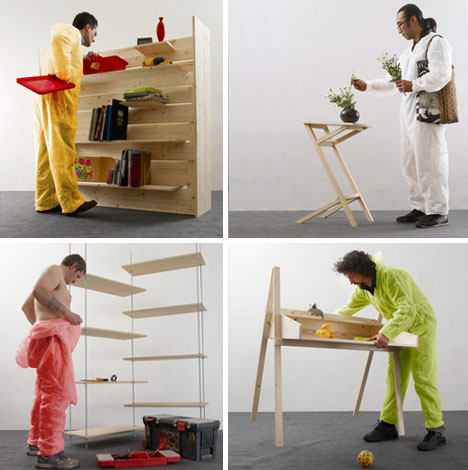
An absolutely brilliant group of artists, designers and carpenters have teamed up for two years in
a row to create a kind of ‘woodworking class’ for the, well, working class. They have exhibited an annual series of masterfully simple do-it-yourself projects made from the most basic of materials – primarily wood with just a bit of metal wire or mesh and a piece or two of plastic. Best of all, they create a free and open set of instructions for anyone who plans to make their own.
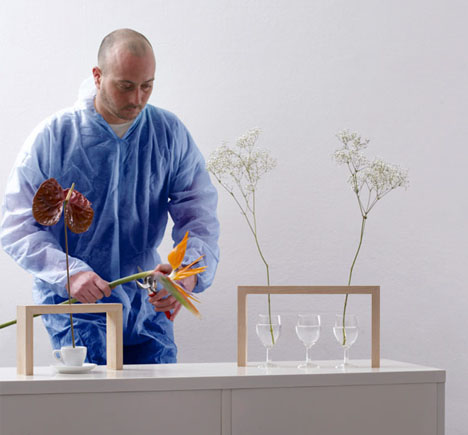
For their first year (2009), the Recession Design group focused mostly on wood objects for the home. These ranged from basic tables and desks to modular shelving and hanging bookcase designs. Some took a more pragmatic approach, emphasizes the bare necessities of furniture functionality. Others were artistic but still minimalist, creating toys out of wood blocks or coat hangers from paint brushes.
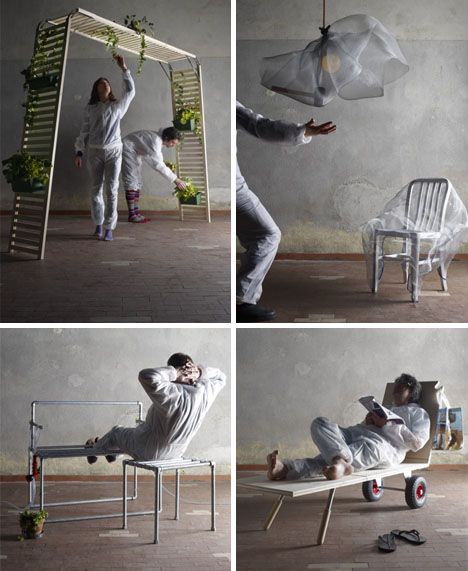
In their second year (2010), the group shifted focus to spaces outside of the home – offices, schools, shops and other educational, institutional and commercial programs. Moreover, their material palette and aesthetic focus broadened as well, incorporating pipes, industrial plastic and other less common (but still cheap and easy to find) building blocks.
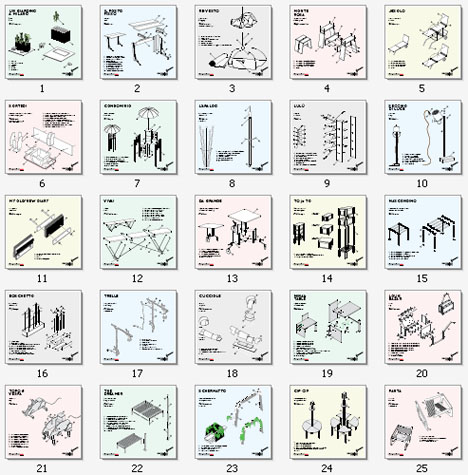
In each case, a simple instruction manual was created – a practical, recession-friendly alternative, perhaps, to the normal playbill you get at the theater or guide to an art exhibit. These manuals illustrate in a single diagram what supplies will be needed to put a given piece together, and their coordinated graphic design makes them feel like a refined book of do-it-yourself project ideas – each year has more than 25 plans to choose from (PDF link).
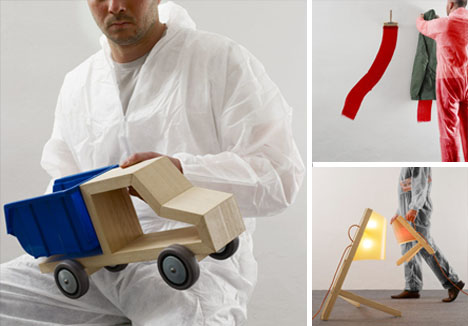
Their clothes are also a curious choice: waterproof plastic gear that ranges from basic white to pink, red and blue. Much could be read into this. Maybe the idea is to create a uniform to show that they are all on the same team. It could also be a nod to DIY as a kind of layman’s experimental science, or to factory outfits made purely for functional reason.
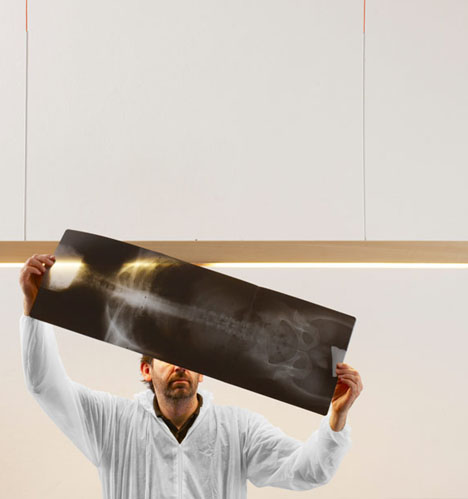
The big question: what will next year bring? Perhaps they will expand their reach even further with simplified versions of larger-scale DIY projects – woodworking their way up through cribs and bunk beds to sheds, gazebos and other projects that might require further interpersonal cooperation between this eclectic set of talented designers.



